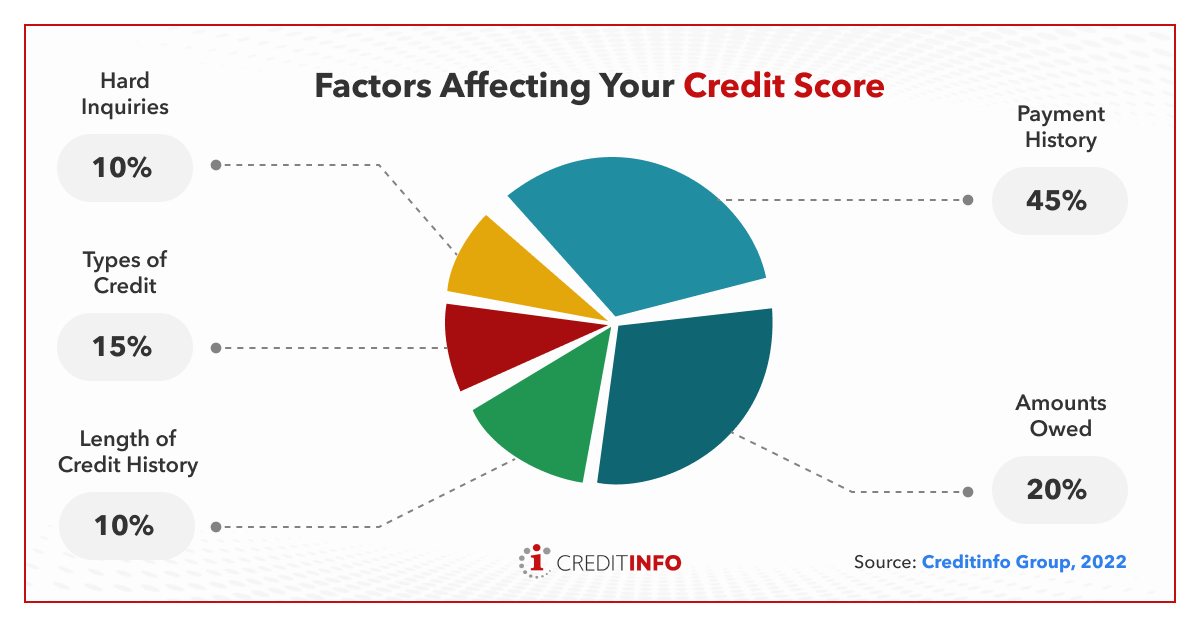Factors Affecting Your Credit Score
Let’s start by describing what a credit score is and why a credit score plays an important role when applying for a credit facility/loan.
A credit score is a 3-digit numerical representation of your past credit behavior that lenders use to predict how likely you are to pay back loans. The three-digit number helps them decide whether you qualify for a mortgage, personal loan, credit card, etc, and the interest rate you’ll be charged.
Credit scores range between 250-900 where 250 is considered a bad score and 900 is a good score. A good credit score means you are low-risk and you qualify for a low-interest rate. While a bad score means you are high-risk, therefore your interest rate is higher than for a low-risk person.
What are the factors considered when calculating your Credit Score?
Payment history (45%)
This is the most important factor in Creditinfo Score. This can reveal how responsible you have been with your credit card and different types of loans in the past. A lender may decide to approve or decline an application for a loan based on the payment history information available.
Amounts owed (20%)
Understanding how much you owe is important. Your Score considers all of your accounts, including those in good standing. If you have a lot of debt relative to your available credit, this may suggest that you have taken on too much credit and the lenders may interpret this to mean that you are at a higher risk of default.
Types of Credit (15%)
Credit Scores will consider the different types of credits that you hold, such as Instalment credits (mortgages, auto loans, personal loans, etc) and revolving credits (credit cards, overdrafts, etc)
Length of credit history (10%)
The length of your credit history refers to how long you’ve been using credit. It considers the age of your oldest account, your newest account, and the average age of all your accounts. In order to obtain a credit score, you need to have at least some form of credit history. That means you need to have established lines of credit with financial institutions such as banks, SACCOs, microfinance banks, and MFIs.
New Credit &Hard Inquiries (10%)
Hard Inquiries occur when you apply for credit/loan and the financial institution does an inquiry on your credit history to determine your creditworthiness. The inquiry is then marked by the credit reference and it appears on your credit report which can affect your credit score depending on the number of loans you’ve applied for that month.
Opening several credit accounts in a short amount of time especially if you don’t have a long credit history is viewed as a sign of financial distress. This can have an impact on your ability to get future financing.
It is important to know and keep track of your credit score and credit history. You can apply for your credit report here which contains your credit score and credit history.







